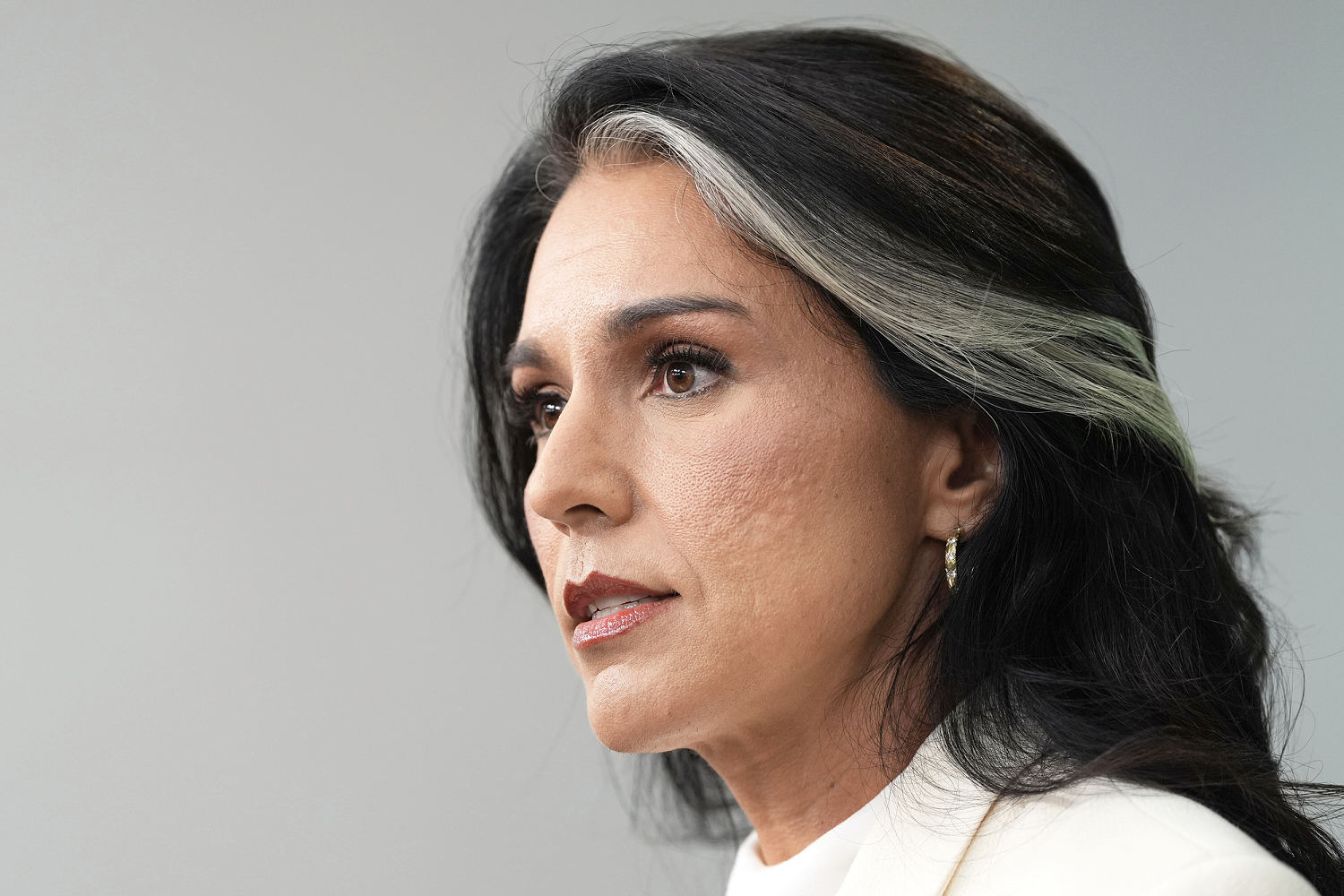
National Intelligence Director Tulsi Gabbard decided to declassify a document on Russia’s interference in the 2016 election last month over the objections of CIA officials who argued that more details should remain secret to protect sensitive spying sources and methods, according to two sources with knowledge of the matter.
The Washington Post first reported on the disagreement.
Some former intelligence officers said they were alarmed at the detail revealed in the declassified document. The top Democrat on the Senate Intelligence Committee, Mark Warner, has warned that the move could put at risk intelligence gathering efforts.
The Office of the Director of Intelligence and the CIA did not immediately respond to a request for comment.
Gabbard last month declassified a five-year-old report by Republicans on the House Intelligence Committee about the 2016 election, saying President Donald Trump backed the decision.
The declassified version of the report contained relatively minimal redactions, and included references to eavesdropping and “an established clandestine” human source with insights into Putin’s view of the U.S. presidential contest.
Michael Van Landingham, a former CIA analyst who helped write the 2017 intelligence community assessment on Russia’s interference in the 2016 election, said he was taken aback at the detail exposed in the declassified document.
“I was shocked to see the declassification detailing the dates the US IC (intelligence community) gathered material, naming specific Russian actors, and quoting at length from both raw and serialized intelligence reports of Russian leadership discussions,” he told NBC News. “This sort of information would allow for Russian authorities to easily find potential sources of the leaks, which would complicate the job of the US IC keeping America safe.”
Van Landingham said when he was working as an analyst examining the same material about Russia’s election meddling in 2016, he said he was subject to a polygraph test and was only allowed to read the information in hard copy after he signed his name to request it.
In a recent internal review of a 2017 U.S. intelligence assessment of Russia’s interference in the 2016 election, the CIA used more cautious language when referring to the information that supported the assessment’s conclusions, without specifying the precise nature of intelligence sources.
The CIA review, which was declassified on July 2 by the agency’s director, John Ratcliffe, referred to “highly classified” intelligence reporting about Russian President Vladimir Putin’s preferred candidate in the U.S. presidential race, without specifying the source of that information.
Larry Pfeiffer, a former senior intelligence official who worked at the National Security Agency and the CIA, said the declassified Republican House report was “probably the lightest redaction of the most sensitive document I’ve ever seen” and that it could have potentially damaging consequences.
“When our intelligence community leaders conduct end-runs around procedures established to protect sources and methods, they put at grave risk foreign sources risking life and limb to give us information vital to our security,” Pfeiffer said.
Appearing in the White House briefing room on July 23, Gabbard claimed that the Republican House report showed that the Obama administration fabricated intelligence that Russia waged information warfare to try to help Trump win the election. Former President Barack Obama and former officials in his administration have dismissed the accusation as totally baseless.
Other Trump administration officials, including Ratcliffe, have issued a series of reports and declassified documents making similar claims of a plot by the Obama administration to play up Russia’s influence efforts in the 2016 election and to sabotage Trump’s presidency.
A bipartisan Senate intelligence report in 2020 endorsed the U.S. intelligence community’s analysis that the Kremlin sought to help Trump win the election. A special counsel appointed by Trump in his first term, John Durham, reported no evidence of a criminal conspiracy by the Hillary Clinton campaign or the Obama administration to undermine Trump with false information.
At a joint press conference with Trump in Helsinki in 2018, Putin said he had wanted to see Trump win the election.


